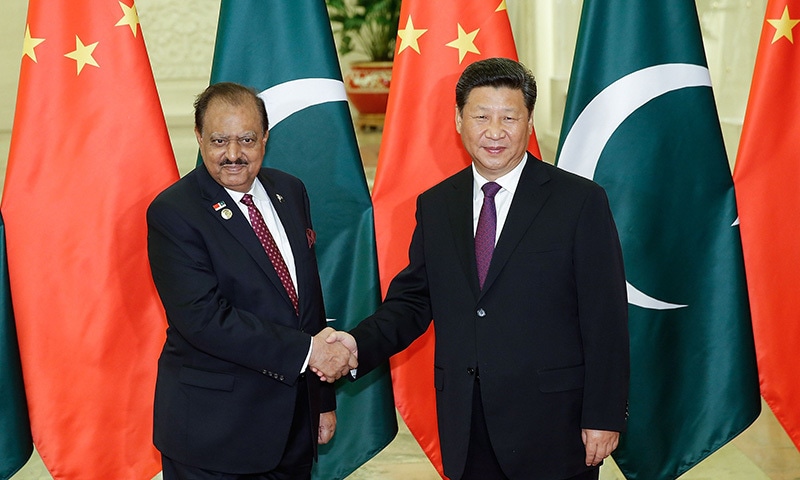Pakistan says 'almost all' Uighur militants eliminated



BEIJING: Almost all members of the Uighur militant group the East Turkestan Islamic Movement (ETIM) have been eliminated from Pakistan, President Mamnoon Hussain said on Wednesday during a visit to Beijing.
China blames violent unrest in its far western region of Xinjiang on separatist groups like ETIM, who it says want to set up an independent state called East Turkestan and have bases in countries like Pakistan and Afghanistan.
Many foreign experts, however, have questioned whether ETIM exists as the coherent group China claims it is.
Also read: China asks US to help fight Muslim militants in Xinjiang region
Meeting Chinese President Xi Jinping in the Great Hall of the People, President Mamnoon said Operation Zarb-i-Azb "has been successful in eradicating the terrorism from our country".
"It has also been very helpful in eliminating the ETIM element from our country and I think almost all the ETIM people in our country have been eliminated. Maybe, if they are there, there should be very few," Hussain said.
Pakistan and China reiterated their commitment to the completion of China-Pakistan Economic Corridor projects in a timely manner.
President Mamnoon said special measures have been taken for the security of Chinese nationals in Pakistan, Radio Pakistan reported.
China and Pakistan are "iron brothers" and always help each other "with great zeal", he added. The president is in China to attend a military parade marking the 70th end of World War Two in Asia.
Also read: President Mamnoon leaves for China to attend military parade
Hundreds have died in violence in Xinjiang in the past few years, blamed by Beijing on the militants. Rights groups say the real cause of the unrest is Chinese restrictions on the Islamic faith and culture of the Uighur people who call the region home.
China says ETIM recruits Uighurs who have gone to Turkey and trains them with extremist groups in Syria and Iraq, with the intent of returning to Xinjiang to wage holy war.
During President Xi's visit to Pakistan in April, Pakistani and Chinese officials signed a series of more than 50 accords to inaugurate the China-Pakistan Economic Corridor, which will create a network of roads, railways and pipelines linking China's restive west to the Arabian Sea through Pakistan.
The project is part of Beijing's “Belt and Road” plan to expand its trade and transport footprint across Central and South Asia. It will give China easier access to Middle Eastern oil via the deepwater port of Gwadar.
Then there have been security concerns over much of the plan, which relies on developing Gwadar — control of which was passed to a Chinese company in 2013.
Take a look: Security fears for China-Pakistan corridor as Xi ends visit
The port lies near the mouth of the Gulf of Oman, east of the Strait of Hormuz through which much of the Middle East's crude production passes.
But linking Gwadar to the rest of Pakistan and on to the western Chinese city of Kashgar, 3,000 kilometres away, would involve major infrastructure work in Balochistan. This is one of Pakistan's most unstable provinces and has been dogged for over a decade by a bloody separatist insurgency.
Ethnic Baloch rebels, who oppose Gwadar's development while the province is not independent, have in the past blown up numerous gas pipelines and trains and attacked Chinese engineers.
Earlier in April, the army formally announced the creation of a 10,000-man strong special force for protecting the development projects to be carried out under CPEC and the Chinese workers associated with them.










































